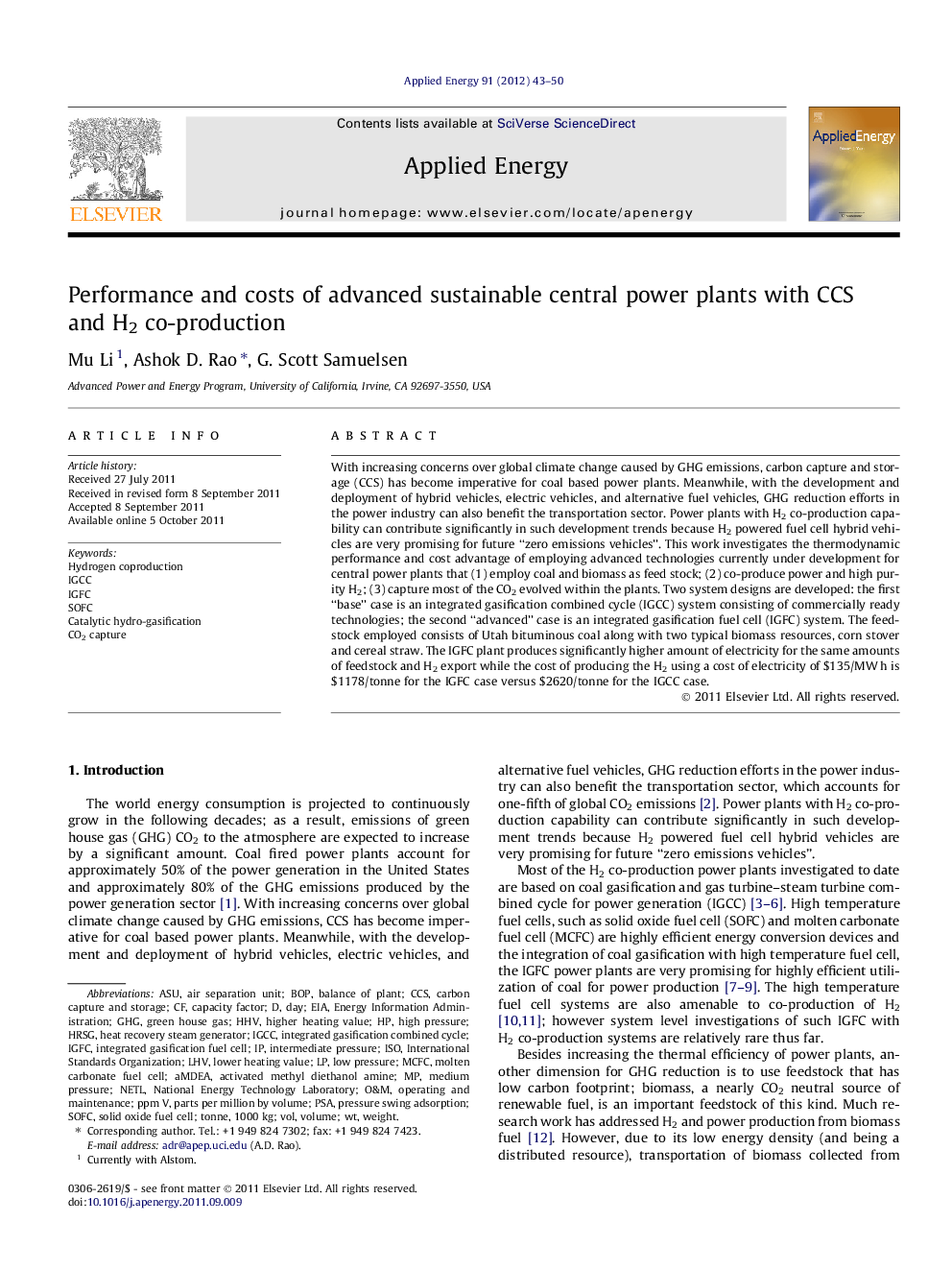| Article ID | Journal | Published Year | Pages | File Type |
|---|---|---|---|---|
| 243709 | Applied Energy | 2012 | 8 Pages |
With increasing concerns over global climate change caused by GHG emissions, carbon capture and storage (CCS) has become imperative for coal based power plants. Meanwhile, with the development and deployment of hybrid vehicles, electric vehicles, and alternative fuel vehicles, GHG reduction efforts in the power industry can also benefit the transportation sector. Power plants with H2 co-production capability can contribute significantly in such development trends because H2 powered fuel cell hybrid vehicles are very promising for future “zero emissions vehicles”. This work investigates the thermodynamic performance and cost advantage of employing advanced technologies currently under development for central power plants that (1) employ coal and biomass as feed stock; (2) co-produce power and high purity H2; (3) capture most of the CO2 evolved within the plants. Two system designs are developed: the first “base” case is an integrated gasification combined cycle (IGCC) system consisting of commercially ready technologies; the second “advanced” case is an integrated gasification fuel cell (IGFC) system. The feedstock employed consists of Utah bituminous coal along with two typical biomass resources, corn stover and cereal straw. The IGFC plant produces significantly higher amount of electricity for the same amounts of feedstock and H2 export while the cost of producing the H2 using a cost of electricity of $135/MW h is $1178/tonne for the IGFC case versus $2620/tonne for the IGCC case.
► Thermo-economic analyses of co-producing electricity and H2 with CO2 capture. ► Gasification plants with solid oxide fuel cells and combined cycles are compared. ► 66 wt.% Utah coal, 17 wt.% corn stover and 17 wt.% cereal straw are gasified. ► H2 production cost is lowered by >50% with fuel cell based gasification plant. ► 70% more net electricity due to synergy between hydrogasification and fuel cells.
